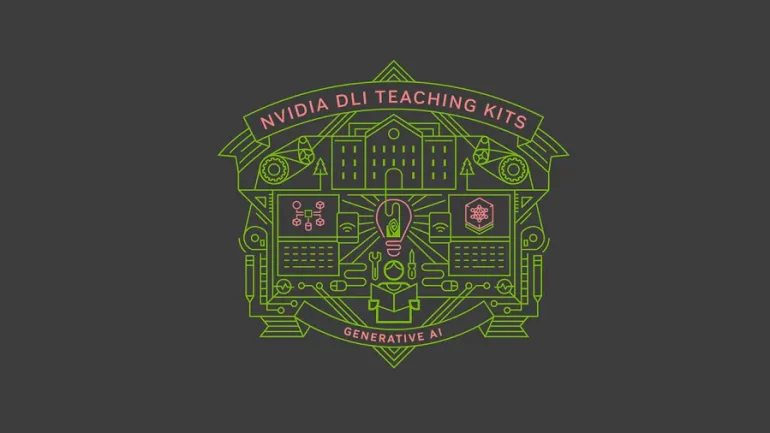- NVIDIA DLI, in partnership with Dartmouth, releases a generative AI teaching kit.
- The course equips students to develop GPU-accelerated AI applications.
- It includes lecture slides, labs, Jupyter notebooks, and online self-paced courses.
- Certifications are awarded to validate student expertise.
- The curriculum focuses on natural language processing (NLP) and training GPT models on NVIDIA’s cloud platform.
- Advanced topics like diffusion models, multi-model LLM architectures, and optimization are also covered.
- Additional modules are planned to expand the course.
- The initiative aims to prepare the next generation of AI engineers, researchers, and leaders.
Main AI News:
In collaboration with Dartmouth College, NVIDIA’s Deep Learning Institute (DLI) has introduced a new generative artificial intelligence (Gen AI) teaching kit designed to equip students with the essential skills for the evolving job market. The teaching kit aims to empower students to develop GPU-accelerated AI applications, giving them a competitive advantage and addressing the knowledge gap in industries increasingly adopting AI technologies.
The Generative AI Teaching Kit follows the format of NVIDIA’s previous educational resources, providing lecture materials, hands-on lab exercises, Jupyter notebooks, and self-paced online courses. Upon completion, students earn certifications that confirm their competency in the subject. The curriculum is centered on natural language processing (NLP) as applied to large language models (LLMs), with a specific focus on training Generative Pretrained Transformers (GPT) models through NVIDIA’s cloud platform.
In addition to GPT model training, the course covers more advanced topics such as diffusion models for generating images and videos, multi-model LLM architectures, and strategies for optimizing LLM orchestration. NVIDIA plans to expand the kit further with additional modules.
Including generative AI in university curricula is essential for preparing the next generation of AI researchers, engineers, and leaders, who will be equipped to tackle the complex challenges associated with AI-driven innovation. The new teaching kit is positioned to play a vital role in helping universities build a pipeline of professionals capable of advancing AI in various sectors.
Conclusion:
Launching NVIDIA’s generative AI teaching kit marks a significant investment in AI education, highlighting the growing demand for skilled professionals. By collaborating with Dartmouth College, NVIDIA addresses the critical skills gap in many industries today, positioning graduates to meet the technical needs of AI-driven innovation. This initiative signals the increasing importance of generative AI across market sectors as companies seek to leverage AI solutions for more efficient, scalable operations. It also suggests a future where professionals with advanced AI capabilities will be in high demand, further driving competition and innovation in the AI space.

